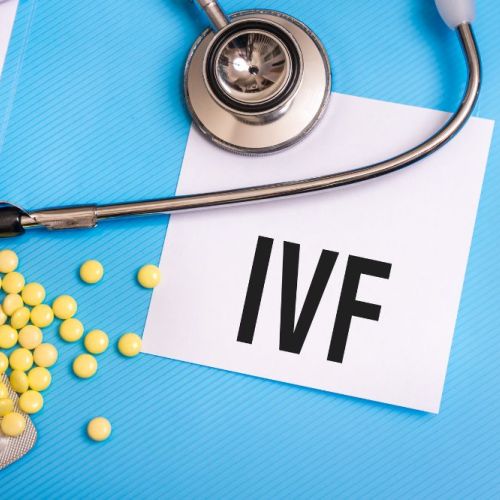How Many Eggs Does a Woman Typically Have?

The quantity and quality of your eggs is a big factor in your ability to conceive. A person who has ovaries is born with all the eggs they’ll ever produce. Egg cells do not regenerate.
How old a woman is and her health influence how many eggs she has at a given point in time. At the California Center for Reproductive Health, we consider your egg quality and quantity when recommending specific fertility treatments.
Here’s how many eggs a woman typically has as she moves through various phases of life.
At birth
When a female baby is born, she has about 1-2 million eggs in her ovaries. As she heads toward puberty, this number of immature egg cells, known as oocytes, drops by about 11,000 each month.
At menstruation
The eggs are not fully mature until a girl begins menstruating, usually around age 12-13. At this point, a girl has about 300,000-500,000 eggs. This number decreases steeply every month. Every month, a woman loses more eggs through ovulation and menstruation.
During adulthood
A woman’s fertility peaks in her mid-20s. She has a 25-30% chance of becoming pregnant each month. As she approaches her 30s, the quality and quantity of her eggs drop notably. By age 32, a woman has just about 120,000 eggs.
Rapid decline in fertility
As a woman ages and heads toward 40, her egg quantity drops considerably. By age 37, she has just about 25,000 eggs.
At age 40
By age 40, a woman has only a 5% chance of conceiving naturally in any given ovulation cycle. It can also be harder to successfully conceive through in vitro fertilization. Using eggs donated from a younger woman can increase the success rate of fertility treatments.
Older eggs are usually less viable. This is because every month, prior to ovulation, your eggs divide. Older eggs are more likely to suffer damage during this division process and end up with abnormal chromosomes.
If a woman is able to get pregnant naturally when she’s well into her 40s, it’s likely she was one of those women born with closer to 2 million eggs, so her egg supply diminished less dramatically.
At menopause
By time a woman reaches menopause, she has fewer than 1,000 eggs. When this supply dwindles down to zero viable eggs, your ovaries quit making estrogen and you pass through menopause – the end of fertility.
Women in the United States reach menopause around age 52, on average. But, your exact menopause time depends on the number of eggs you had at birth and how quickly you lose them.
Why you lose eggs
During ovulation, your ovaries release eggs to be possibly fertilized by sperm. Each month, your body pinpoints one egg out of the approximately 1,000 released to become the dominant follicle. The other eggs in this cycle that are released, but not chosen as dominant, simply die off.
So every month, you lose about 1,000 eggs. Smoking and certain chemotherapy and radiation treatments can accelerate egg loss.
If you’re having trouble getting pregnant, talk to our team at the California Center for Reproductive Health about your ovarian reserve and your egg quality. We can offer solutions like egg donation when your egg quality and quantity aren’t up to par.
And, if you’re younger with a good egg supply, but aren’t ready to start a family quite yet, talk to us about freezing your eggs for later pregnancies.
Call one of our offices in Encino, Valencia, Alhambra, or West Hollywood, California, to set up an appointment. Or you can reach out via this website.
Eliran Mor, MD
Reproductive Endocrinologist located in Encino, Santa Monica, Valencia & West Hollywood, CA
FAQ
What does a reproductive endocrinologist and infertility specialist do?
Reproductive endocrinology and Infertility is a sub-specialty of Obstetrics and Gynecology. In addition to managing medical and surgical treatment of disorders of the female reproductive tract, reproductive endocrinologist and infertility (REI) specialists undergo additional years of training to provide fertility treatments using assisted reproductive technology (ART) such as in vitro fertilization.
Reproductive endocrinologists receive board certification by the American Board of Obstetrics and Gynecology in both Obstetrics and Gynecology and Reproductive Endocrinology and Infertility.
When should I see an REI specialist?
In general, patients should consider consulting with an REI specialist after one year of trying unsuccessfully to achieve pregnancy. The chance of conceiving every month is around 20%, therefore after a full year of trying approximately 15% of couples will still not have achieved a pregnancy.
However, if a woman is over the age of 35 it would be reasonable to see a fertility specialist earlier, typically after 6 months of trying.
Other candidates to seek earlier treatment are women who have irregular menses, endometriosis, fibroids, polycystic ovary syndrome (PCOS), women who have had 2 or more miscarriages, or problems with the fallopian tubes (prior ectopic pregnancy).
What are the reasons we are having trouble conceiving?
Approximately 1/3 of the time cause for infertility is a female factor, 1/3 of the time a male factor, and the remaining 1/3 a couples’ factor.
At CCRH, we emphasize the importance of establishing a correct diagnosis. Both partners undergo a comprehensive evaluation including a medical history and physical exam.
Furthremore, the woman’s ovarian reserve is assessed with a pelvic ultrasound and a hormonal profile. A hysterosalpingogram (HSG) will confirm fallopian tube patency and the uterine cavity is free of intracavitary lesions. A semen analysis is also obtained to evaluate for concentration, motility, and morphology of the sperm.
Additional work up is then individualized to direct the best possible treatment option for each couple.
What is IVF? What is the process like?
In vitro fertilization (IVF) is the process that involves fertilization of an egg outside of a woman’s body.
The process starts with fertility drugs prescribed to help stimulate egg development. In your natural cycle, your body is only able to grow one dominant egg, but with stimulation medication we can recruit multiple eggs to continue to grow. After about 8-10 days of stimulation, the eggs are surgically retrieved and then fertilized with sperm in a specialized laboratory. Fertilized eggs are then cultured under a strictly controlled environment within specialized incubators in the IVF laboratory for 3-5 days while they develop as embryos. Finally, embryos (or an embryo) are transferred into the uterine cavity for implantation.
Should I have IVF?
Before deciding if IVF is the right choice, it’s important to sit down with an REI specialist to discuss available treatment options. For some people, other methods such as fertility drugs, intrauterine insemination (IUI) may be the best first choice treatment. At CCRH, we believe each individual couple is unique and not everyone needs IVF.
Is the IVF procedure painful?
While not painful, the fertility medications may some side effects including headaches, hot flashes, mood swings, and bloating. The injection sites may also bruise.
Will IVF guarantee a baby?
Unfortunately, no. Many people think once they start IVF it’s a matter of time that they will be pregnant and have a baby. But according to national statistics per the Society of Assisted Reproduction (SART), on average 40% of assisted reproduction cycles achieve live births in women under age 35. The chances of success then continue to decrease with advancing age.
At CCRH, we employ only evidence-based interventions to ensure patient safety and optimal outcome. While we cannot guarantee a baby, we guarantee that you will receive the best, most advanced, personalized care to help you maximize your chance of a baby.
What is the success rate for IVF?
The average IVF success rate (success measured in live birth rate) using one’s own eggs begins to drop around age 35 and then rapidly after age 40. This is due to the decline in egg quantity and egg quality as a woman ages.
Our clinic’s success rate consistently beats the national average year after year.
Do insurance plans cover infertility treatment? How much does IVF cost?
Individual insurance plans often do not have any coverage for infertility treatments. If you have a group plan, you can call members services to see if they have coverage for infertility (including consultation/workup and IVF).
After your consultation with our REI specialist, one of our dedicated account managers with sit with you to go over the cost of treatment.




